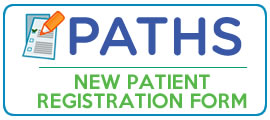What do Recreational Therapists do?
Recreation therapists/therapeutic recreation specialists assist people with disabilities or disabling conditions that interfere with their ability to participate independently in daily life activities, including recreation and leisure. They help individuals overcome physical, social, emotional, psychological, and environmental barriers. Therapeutic recreation specialists may receive more specialized training in adaptive aquatics, adaptive or wheelchair sports, outdoor adventure activities, horticultural therapy, or hippotherapy. They also may specialize in specific population groups, such as developmental disabilities, mobility impairments, or mental illness.
Recreation therapists’ primary goals are to provide support for the individual to achieve leisure participation and an increased quality of life.
What might Recreational Therapists do in a workday?
- assess clients’ needs and functional abilities.
- plan and implement goal-oriented programs.
- document clients’ progress.
- monitor and perform quality improvement activities.
- facilitate interventions on skill development, improvement of functional skills, leisure awareness, community integration, and resource identification.
- participate in interdisciplinary teams in the provision of service and care.
How much do Recreational Therapists earn?
- $20,000 - $45,000
How do I become a Recreational Therapist?
Students interested in the field of therapeutic recreation should take the most challenging high school courses available in science, math, English, and psychology. Experience in a variety of recreational activities, health care, and community settings and in assisting persons with disabilities may be helpful.
Students must complete a bachelor’s degree in therapeutic recreation or recreation and leisure with an option in therapeutic recreation from an accredited college; apply for certification; and pass a national examination. Master’s and doctoral degrees also are available. Individuals should be innovative, flexible, organized, and have strong interpersonal skills.
Where else can I learn about becoming a Recreational Therapist?
Virginia Recreation and Park Society Therapeutic Recreation Resource Group
6372 Mechanicsville Turnpike, Suite 109 / Mechanicsville, VA 23111
tel: (804) 730-9447 / web: www.vrps.com
American Therapeutic Recreation Association
629 N. Main Street / Hattiesburg, MS 39401
tel: (601) 450-2872 / web: www.atra-online.com
National Recreation and Park Association
22377 Belmont Ridge Road / Ashburn, VA 20148
tel: (800) 626-6772 / web: www.nrpa.org
National Council for Therapeutic Recreation Certification
7 Elmwood Drive / New City, NY 10956
tel: (845) 639-1439 / web: www.nctrc.org


